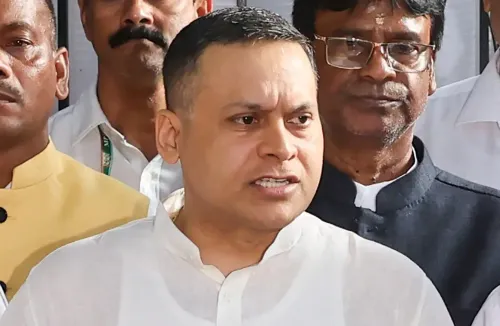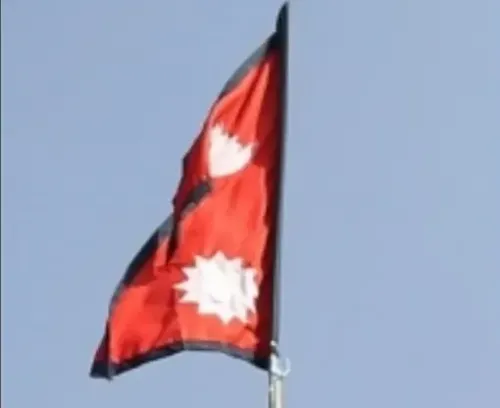Who Were the Two Terrorists Arrested in Poonch, J&K?

Synopsis
Key Takeaways
- Two terrorists apprehended in Poonch district during a police operation.
- Weapons including assault rifles were recovered from the suspects.
- Anti-terror operations are targeting not just armed terrorists but their entire support network.
- Intelligence agencies are monitoring hawala and drug-related activities linked to terrorism.
- Specialized anti-drone technology is being employed to combat drone threats.
Jammu, Aug 31 (NationPress) On Sunday, authorities announced the apprehension of two terrorists in Poonch district, Jammu and Kashmir, during a strategic operation based on intelligence. The operation led to the recovery of weapons and ammunition, as disclosed by the detained individuals.
The suspects were identified as Tariq Sheikh from Azamabad and Riyaz Ahmad, both hailing from Chamber village in Poonch. They were captured during a targeted raid.
“Following their interrogation, police executed a raid on Tariq Sheikh's rented residence in Jallian village, uncovering critical items including two assault rifles and various ammunition. Ongoing questioning of the suspects is underway,” police officials stated.
Meanwhile, the Army stationed along the 740-km-long Line of Control (LoC) remains vigilant to prevent infiltration attempts from the Pakistani territory. Police and security forces are conducting robust anti-terror operations across the region.
These operations focus on specific targets, such as terrorists, their overground associates (OGWs), and sympathizers.
The aim is to dismantle not only armed terrorists but the entire ecosystem that supports terrorism.
Intelligence agencies are also monitoring hawala money networks, drug trafficking, and peddling activities. Many of these illicit operations are linked to terrorist handlers operating from across the border, with funds generated being used to fuel terrorism in Jammu and Kashmir.
In numerous instances, terrorist handlers have utilized drones to transport arms, ammunition, cash, and drugs to support their operatives in the area.
To combat this, the Border Security Force (BSF) managing the international border across Jammu, Samba, and Kathua districts has implemented specialized anti-drone technology to detect and neutralize these UAVs used by terrorist facilitators.









